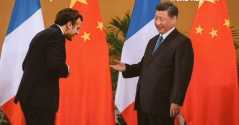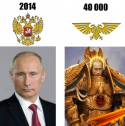Effects of Ukrainian grain dumping.
Kowalczyk said he decided to quit the position due to the European Commission's decision to extend duty free imports for Ukrainain grain until June 2024. Polish farmers had called for the introduction of tariffs.
"As it is clear that this demand will not be met by the European Commission at this point, I decided to resign from the post of agriculture minister," Kowalczk said.
Logistical bottlenecks mean large quantities of Ukrainian grains, which are cheaper than those produced in the European Union have ended up in Central European states, hitting prices and sales of local farmers.
The prime ministers of five states Poland, Hungary, Romania, Bulgaria, and Slovakia wrote to European Commission President Ursula von der Leyen on Friday to demand action on Ukrainian agricultural imports. The leaders wrote that the scale in the increase of products including grains, oilseeds, eggs, poultry, and sugar has been “unprecedented”. They said tariffs may have to be reintroduced if the influx of grain and other products from Ukraine cannot be stopped by other means.
The logistical bottlenecks that emerged in the ports and other routes created a situation in which large quantities of Ukrainian grains, which are cheaper than those produced in the EU, were unable to leave the Central European countries, and therefore badly impacted the local price, markets and farmers.
In their letter, the PM’s called for a variety of actions to limit market distortions caused by the uncontrolled grain influx and proposed that if these were not successful, tariffs and tariff quotas should be brought back by the EU.
“Let’s support Ukraine, but let’s do it wisely and, above all, let’s put the interest of the country and Polish farmers in the first place,” Polish Prime Minister Mateusz Morawiecki wrote on Twitter.
For a third day in a row, Bulgarian grain producers protested against the import of cheap Ukrainian grain. Bulgarian farmers said that they want the cabinet to take urgent measures to impose a veto on duty-free import of agricultural products from Ukraine. Some of them blocked the border crossing near the village of Kardam, dumping a trailer full of sunflower seed on the road leading to the border with Romania. According to Radostina Zhekova, chairperson of the Dobrudzha Union of Grain Producers, the produce staying in the warehouses is worth about EUR 1.7 billion.
About 2 million tons of sunflower are produced in Bulgaria per year, but no more than 5-10% of it has been realized on the market so far, the vice-chairman of the National Association of Grain Producers, Iliya Prodanov, said.
After last night's meeting of protesters with President Rumen Radev, it became clear that this country will negotiate in Brussels for changes to the European regulation allowing mass imports from Ukraine, as well as that it will insist on being able to introduce anti-dumping mechanisms in case of oversaturation of the market.
The grain producers will renew their protest on April 7 to support their Romanian colleagues, who will protest on that day.



